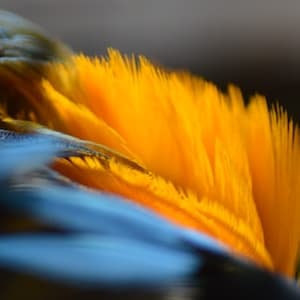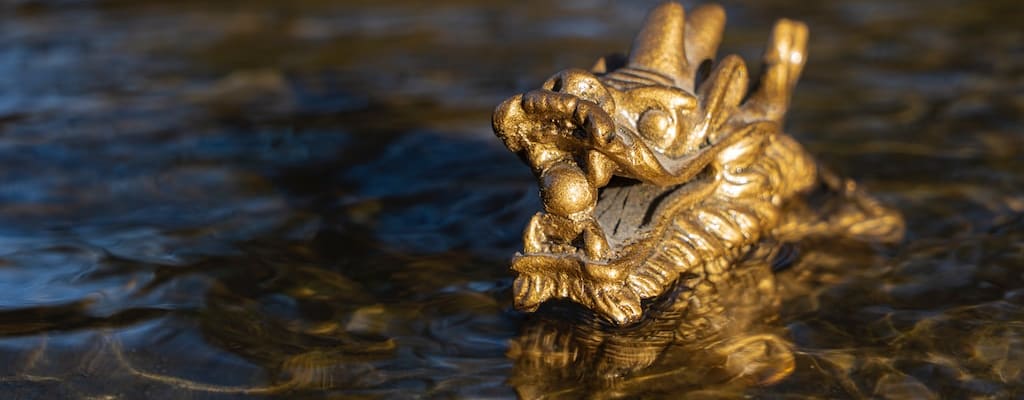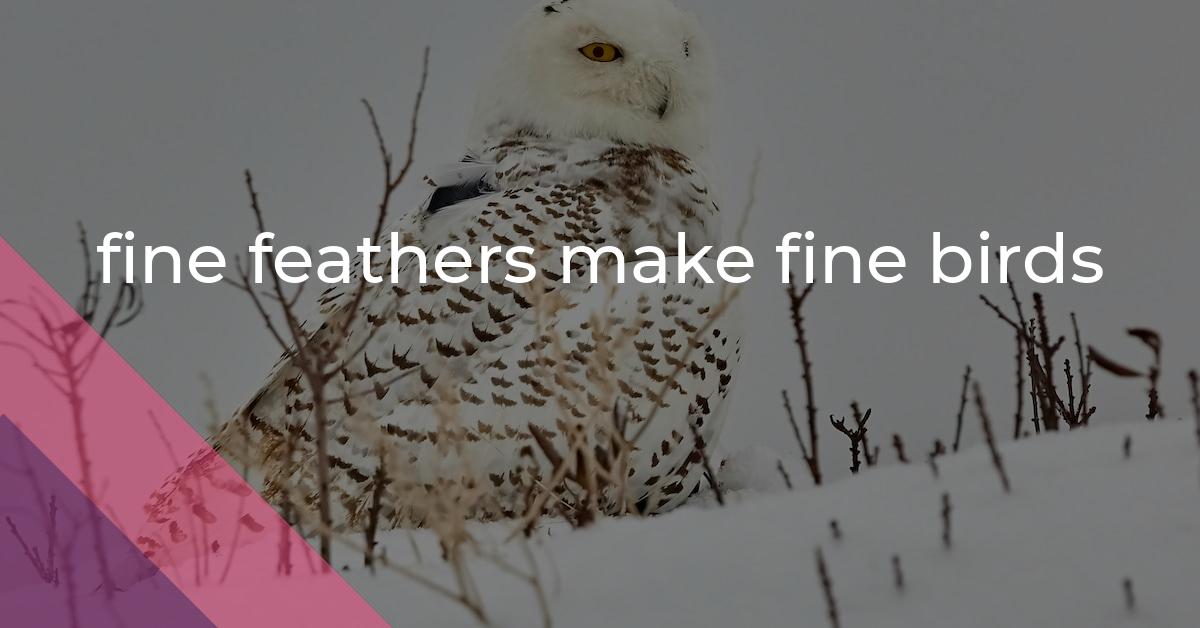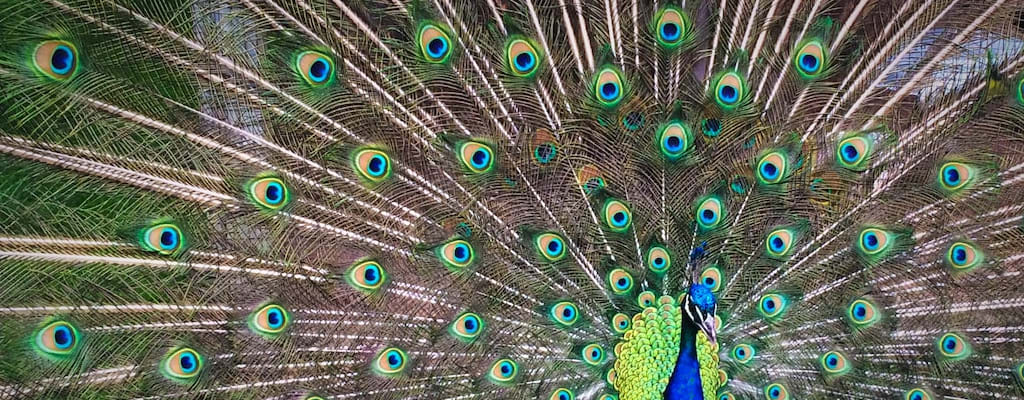fine feathers make fine birds: Idiom Meaning and Origin
What does ‘fine feathers make fine birds’ mean?
The idiom "fine feathers make fine birds" means that a person's appearance or external qualities can deceive others into thinking they possess admirable qualities or skills. However, this may not always be the case, as true value lies within a person rather than their outward appearance.

Idiom Explorer
The idiom "knock someone down with a feather" means to greatly surprise or shock someone. The use of the feather emphasizes how unexpected or unbelievable the news or event is.
The idiom "just another pretty face" is used to describe someone who is attractive but lacks intelligence, skills, or substance. It implies that the person's appearance is their main or only attribute, often used in a dismissive or derogatory manner.
The idiom "good value" refers to something that is worth the money spent on it, providing a high quality or benefit relative to its cost.
The idiom *gild the lily* means to unnecessarily decorate or embellish something that is already beautiful or perfect.
The idiom "for the birds" means something is worthless, unimportant, or not serious.
The idiom "fly in the ointment" refers to a small but significant flaw or issue that spoils something positive or favorable. It symbolizes how even a small problem can greatly detract from the overall enjoyment or success of a situation.
The idiom "finer things" refers to high-quality or luxurious items or experiences, often associated with wealth or sophistication.
The idiom "fine line" refers to a very narrow distinction or difference between two things or situations.
The idiom "feather one's nest" means to accumulate wealth or resources for one's personal benefit, often through cunning or unethical means. It suggests the act of building a comfortable and secure home for oneself by adding more and more feathers to a nest, symbolizing wealth and comfort.
Unlock Charm
One popular idiom that emphasizes the impact of outward appearance is "fine feathers make fine birds." This idiom highlights the idea that how we dress and present ourselves can greatly affect how others perceive us. When we dress elegantly and wear nice clothes, we are often seen as classy and sophisticated.
This idiom has its roots in ancient Greece and can be found in Aesop's fable "The Peacock and Juno." In this fable, the peacock boasts about its beautiful feathers to Juno, the goddess of beauty. However, Juno advises the peacock to cultivate inner values rather than relying solely on its external appearance.
Over time, this idiom has spread across different languages and cultures. In English, it started appearing in written texts in the early 16th century, with John Heywood's book of proverbs in 1546 being the first recorded use.
Throughout history, this idiom has been cited in literature, poetry, and political speeches. For example, in his 1856 inaugural address, James Buchanan used the idiom to emphasize the importance of a dignified appearance for a nation:
"The world looks upon us, not only as friends of universal progress, but as the finest representative example of self-government. Let us hold up the banner, on which is inscribed, 'All men are created equal.' The nations cannot associate with us without saying, 'Fine feathers make fine birds!'"
In today's society, this idiom remains relevant, reminding us of the importance of presenting ourselves well. It emphasizes that first impressions matter and that we can influence how others perceive us by paying attention to our external appearance.
However, it's crucial to recognize the limitations of this idiom. While outward appearance can catch someone's attention initially, it does not determine one's true worth or character. It serves as a reminder that it is equally important to focus on personal growth, virtues, and talents rather than relying solely on external appearances.
Alongside "fine feathers make fine birds," there are other idioms related to birds and feathers that further emphasize the importance of like-mindedness and personal accomplishments. These idioms include "birds of a feather," "birds of a feather flock together," "feathered friend," "feather in one's cap," and "feather one's nest."
The idiom "birds of a feather" suggests that people who share similar characteristics or interests tend to associate with one another. This means that individuals with similar opinions, values, or backgrounds often form connections and friendships.
A related saying, "birds of a feather flock together," reinforces this idea by suggesting that people who have similar attributes or interests tend to gather in groups. This idiom implies that individuals naturally gravitate towards others with whom they have commonalities.
The phrase "feathered friend" refers to a bird and is often used in a metaphorical sense to describe a loyal or trusted companion. It highlights the bond between humans and birds and signifies the importance of having reliable and supportive relationships.
The expression "feather in one's cap" is used to indicate an achievement or accomplishment that one can be proud of. It stems from the tradition of adding a feather to one's hat as a symbol of success or recognition. This idiom emphasizes the importance of personal achievements and the pride associated with them.
Lastly, the saying "feather one's nest" is used to describe the act of accumulating wealth or resources for personal comfort or benefit. It suggests that individuals strive to create a secure and comfortable life for themselves and their families.
Incorporating these idioms into the concept of "fine feathers make fine birds" furthers the understanding of the influence of appearance and like-mindedness in human interactions. While our outward appearance can make a significant impact, it is also essential to consider the connection between individuals who share similar qualities, the value of loyal companionship, personal achievements to be proud of, and the desire to secure a comfortable life.
The idiom "fine feathers make fine birds" originated in ancient Greece and still holds relevance today. It reminds us of the power of first impressions and the importance of presenting ourselves well. However, it should also be viewed as a starting point for deeper reflection on the complexities of human nature, the significance of like-minded relationships, personal accomplishments, and the pursuit of a comfortable life.
Example usage
Examples:
1. She decided to dress up in an elegant gown and wear her finest jewelry to the party. As soon as she arrived, everyone started complimenting her, proving that fine feathers make fine birds.
2. The company CEO always makes sure to wear expensive designer suits and accessories. He believes that fine feathers make fine birds, and that presenting oneself in a polished and professional manner is crucial for success.
3. In preparation for her big presentation, the student wore a tailored suit and made sure her hair and makeup were perfect. She wanted to make a good impression on her professors, knowing that fine feathers make fine birds.
More "Appearance" idioms



